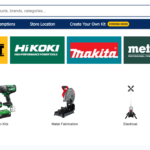The difference between a profitable rental property and one that drains your wallet often comes down to how well you manage it. Smart property owners know that maximizing rental income requires more than just finding tenants and collecting rent—it demands strategic planning, proactive maintenance, and professional expertise.
Whether you own a single rental unit or manage multiple properties, implementing the right strategies can significantly increase your monthly cash flow while protecting your long-term investment. From optimizing rent prices to maintaining your property’s condition, every decision impacts your bottom line.
Set Competitive Rent Prices Based on Market Data
Pricing your rental property correctly forms the foundation of strong rental income. Set the rent too high, and you’ll struggle to find tenants. Price it too low, and you’re leaving money on the table every month.
Research comparable properties in your area to understand current market rates. Look at similar units with the same number of bedrooms, bathrooms, and amenities within a reasonable radius of your property. Online rental platforms, local real estate websites, and neighborhood Facebook groups can provide valuable pricing insights.
Consider seasonal fluctuations when setting rates. Many markets experience higher demand during spring and summer months, allowing for premium pricing. Conversely, winter months might require more competitive rates to attract tenants quickly.
Enhance Property Value Through Strategic Upgrades
Small improvements can justify higher rent prices and attract quality tenants who are willing to pay premium rates for well-maintained properties.
Focus on high-impact, cost-effective upgrades first. Fresh paint in neutral colors makes any space feel newer and cleaner. Updated fixtures in kitchens and bathrooms create a modern feel without breaking the bank. New flooring, particularly in high-traffic areas, can transform the entire look of a property.
Energy-efficient improvements serve a dual purpose—they reduce utility costs and appeal to environmentally conscious renters. LED lighting, programmable thermostats, and efficient appliances can become strong selling points that justify higher rent.
Implement Preventive Maintenance Programs
Proactive maintenance prevents small issues from becoming expensive repairs that eat into your rental income. Regular upkeep also keeps tenants satisfied, reducing turnover and vacancy periods.
Create a maintenance schedule that covers essential systems like HVAC, plumbing, and electrical components. Change air filters quarterly, inspect and clean gutters twice yearly, and service heating and cooling systems annually. These simple steps prevent major breakdowns that could leave you with costly emergency repairs and unhappy tenants.
Address minor repairs immediately. A small leak can quickly become water damage that requires extensive repairs and temporary tenant relocation. Quick responses to maintenance requests also build tenant satisfaction and encourage lease renewals.
Reduce Vacancy Periods Through Tenant Retention
Every month your property sits vacant represents lost income that you can never recover. Keeping quality tenants happy and encouraging lease renewals is often more profitable than constantly searching for new renters.
Build positive relationships with your tenants through responsive communication and fair treatment. Respond to maintenance requests promptly, respect their privacy, and maintain open lines of communication. Small gestures like holiday cards or quick responses to questions can make tenants feel valued.
Consider offering lease renewal incentives to quality tenants. A small rent increase below market rate might be preferable to the costs associated with finding new tenants, including advertising, screening, cleaning, and potential vacancy periods.
Screen Tenants Thoroughly to Minimize Problems
Quality tenants protect your rental income by paying rent on time, taking care of your property, and staying longer. Comprehensive tenant screening helps you identify renters who will be reliable and responsible.
Verify employment and income to ensure tenants can comfortably afford the rent. A good rule of thumb is requiring monthly income that’s at least three times the monthly rent amount. Check credit scores and rental history to gauge financial responsibility and past behavior as tenants.
Contact previous landlords directly rather than relying solely on references provided by applicants. Former landlords can provide honest insights about payment history, property care, and any issues that arose during the tenancy.
Consider Professional Property Management Services
Managing rental properties requires significant time, knowledge, and emotional energy. Professional property management companies in Salt Lake City and other markets offer expertise that can actually increase your net income despite the management fees.
Experienced property managers understand local rental markets and can optimize your rent prices based on current conditions. They handle tenant screening, maintenance coordination, and rent collection, freeing up your time for other investments or activities.
Professional managers also stay current with landlord-tenant laws and regulations, helping you avoid costly legal mistakes. Their established networks of contractors and service providers often result in better pricing for repairs and maintenance work.
Monitor and Adjust Your Strategy Regularly
Successful rental property management requires ongoing attention and periodic strategy adjustments. Market conditions change, properties age, and tenant preferences evolve over time.
Review your rental rates annually and compare them to current market conditions. Even if you have long-term tenants, understanding market rates helps you make informed decisions about lease renewals and future pricing.
Track your expenses carefully to identify areas where you might reduce costs without compromising property quality or tenant satisfaction. Look for patterns in maintenance requests that might indicate larger issues requiring attention.
Maximize Your Investment Returns
Boosting rental income through expert care and planning transforms your property from a passive investment into an active wealth-building tool. Strategic pricing, proactive maintenance, quality tenant relationships, and professional management create a foundation for sustained profitability.
Remember that successful rental property ownership is a marathon, not a sprint. Consistent attention to these strategies will compound over time, resulting in higher monthly income, better property appreciation, and reduced stress for you as the owner.








